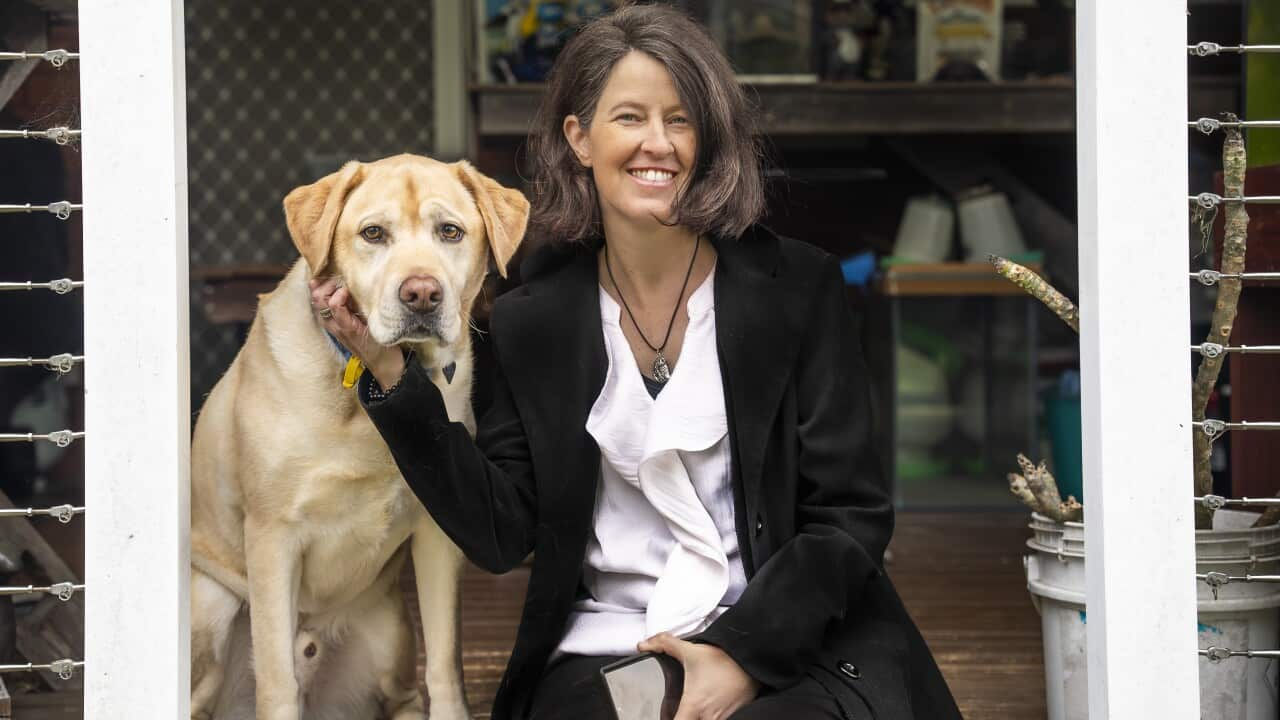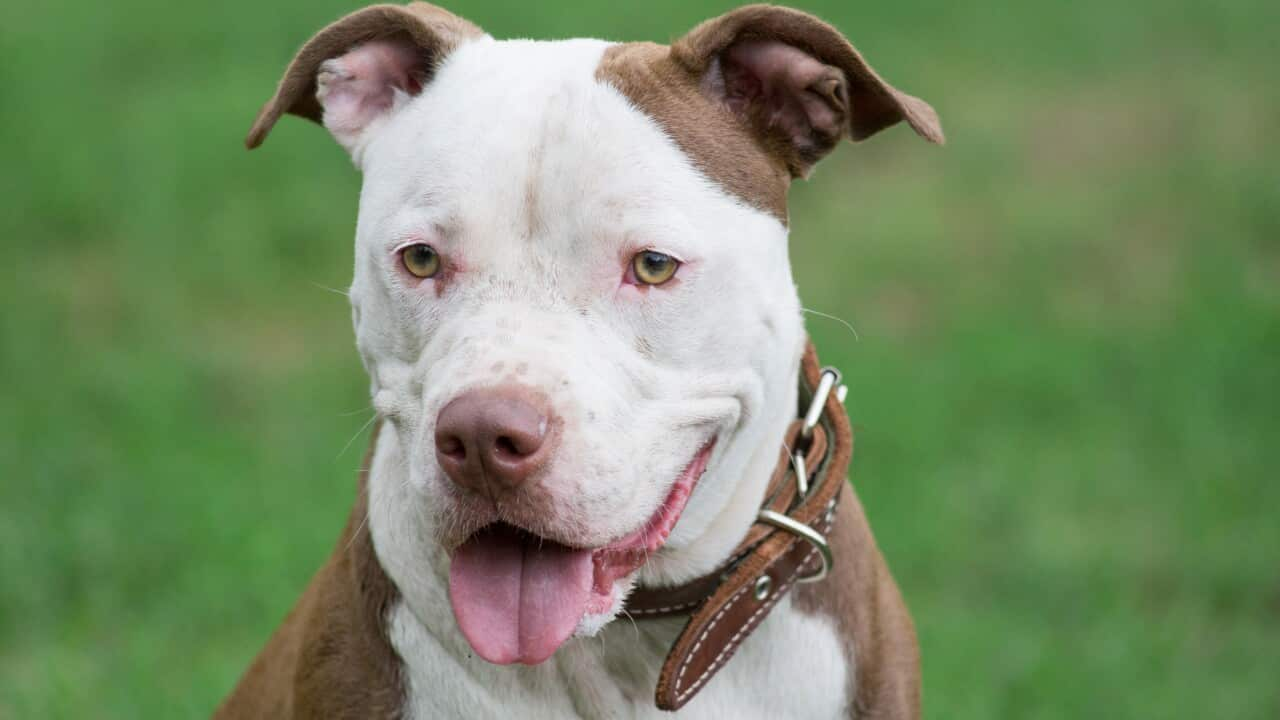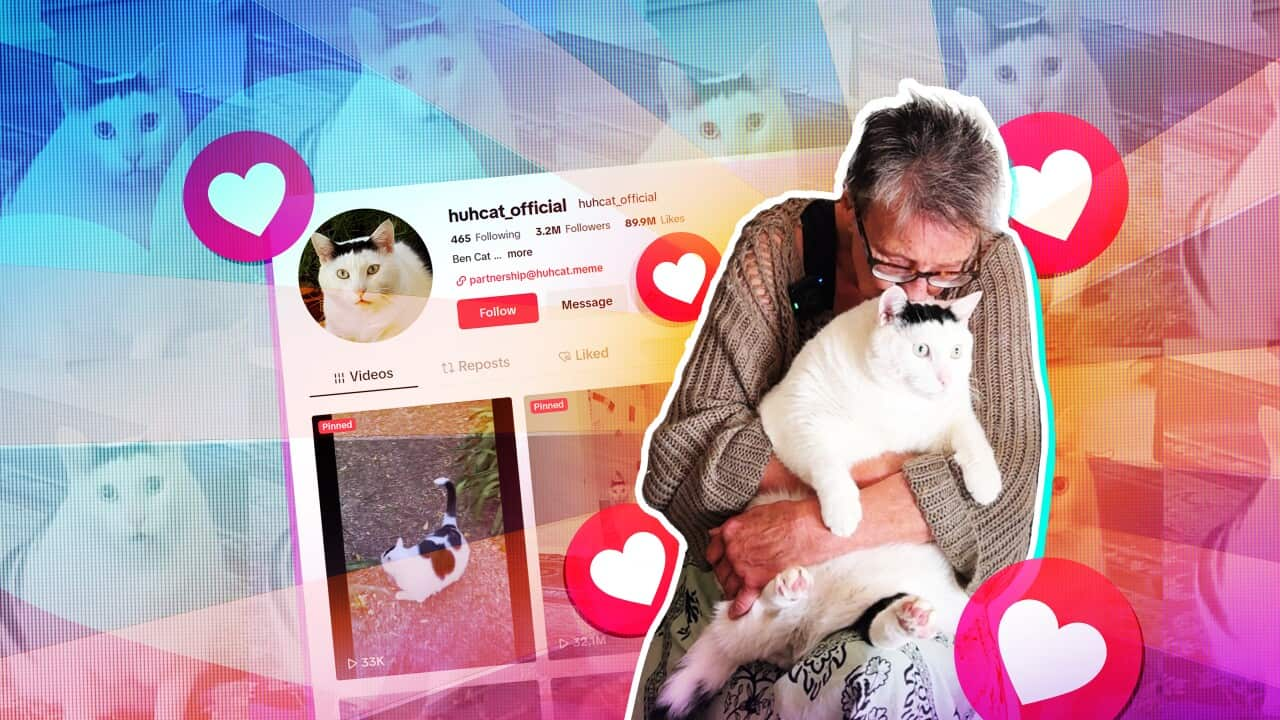Pet owners might soon find themselves in hot water as one of Australia's seven pet microchip registries is set to stop operating.
The closure would mean that hundreds of thousands of pets across the country would have microchips that essentially lead to nowhere, making owners uncontactable and untraceable if their pet gets lost.
The worst part is that it's completely randomised, with no common thread for who might be affected.
Here's what you need to know, how to check if you've been affected, and how to keep your furry friend safe.
Hundreds of thousands of pets to have 'useless' microchips
Rumours emerged online late last year that HomeSafeID, one of Australia's five private pet microchip registries, had stopped operating.
Then, on 5 February, a notice from the site's administrator appeared on the company's website, saying the site was "likely to go offline in the future" due to unpaid bills.
"You may want to investigate alternatives to your pet's registration, as once this site goes offline, the registration data will no longer be available online or searchable via Pet Address," the message read.

Source: Supplied
Where are your pet's microchip details stored?
The nature of the microchip registry means that anyone could be affected by the impending closure.
Many of us might think that our local council or vet stores our pets' microchip details — but it's neither.
There are just seven registries in Australia. Two are owned by state governments in NSW and South Australia, which means that your pets need to be registered with the state registry. The other five are privately owned, like HomeSafeID.
"It will affect pretty much all pet owners," Orr said. "Without knowing your pet's microchip and which registry it's registered to, you don't know if this is affecting you or not."
"It's important that everyone who has a pet checks what their pet's microchip number is and check where they're registered."
How many pets are affected?
Orr predicts that "hundreds of thousands" of pet owners will be affected by the closure across the country.
While HomeSafeID is based in Perth, there isn't a common thread for who may be affected.
But if you've adopted your pet from a rescue or shelter, particularly RSPCA shelters — a charity providing animal care and protection services — they're more likely to have a HomeSafeID as the company was partially owned by RSPCA Queensland up until 2020.
Orr said plenty of breeders and vets across the country also use the registry platform.
"You can have absolutely no idea if your pet is affected," she said.
"It's a pretty big issue and there's no reason that another microchip registry couldn't go bankrupt tomorrow.
"There's nothing stopping this from happening again."
Orr said pets who are microchipped are 13 times more likely to return home than pets without.
If these microchips aren't working as they should and aren't linked to any information, lost pets may go to shelters or pounds and eventually be rehomed, despite having an existing family out looking for them.
The other consequence is one much sadder — if they can't find a new home, they might be euthanised.
Orr said there are other wider implications for the closure of HomeSafeID, with pet custody battles or stolen pets, where microchips are key factors, also set to be affected.
How to check your pet's microchip
To check your pet's microchip details, you can head to Pet Address, which is jointly funded by the five privately owned companies.
To see who your pet is registered with, you just need to pop in your pet's microchip number and hit search.
The website doesn't work for the state registries, meaning only vets and 'authorised identifiers' (such as shelters) in NSW or South Australia can access pet owner details. But the good news is that if your pet was microchipped in these states, you're unlikely to be affected by the closure.
If, like many people, you don't know your pet's microchip number, you can head to your local vet and they'll scan your pet and find that microchip number for you.
Once you've got your registry details, you'll be able to see if you're with HomeSafeID. But even if you're not, Orr recommends taking the time to update your contact details so if anything goes awry with your pet, you're contactable.
What should I do if I'm with HomeSafeID?
If Pet Address shows that your pet is registered with HomeSafeID, Orr recommends you take immediate action.
"If it comes back that they're registered with HomeSafeID, that's when you need to take action and you need to move your pet's details to another microchip registry," she said.
If you live in South Australia or NSW, you can join the state registry. Otherwise you should apply to transfer your microchip details to one of the other four private registries.
This won't require any additional microchipping (in fact, it's illegal for animals to have multiple microchips).
Instead, you'll need to share your pet's microchip number and your existing details with another registry, which requires some online paperwork.
The other private companies include:
- Central Animal Records
- Australasian Animal Registry
- PetSafe
- Global Micro Animal Registry
LISTEN TO

Yuki is rescuing abandoned pets to prevent them dying ‘a terrible death’
SBS News
05:18
A 'national oversight'
Orr said it's a "national oversight" due to a lack of guidelines, rules and regulations about how microchip data is stored.
"Because there are no guidelines, it means that if one of them goes bankrupt … there's no sort of recourse for making sure that information is retained or transferred to another company," she said.
"We have to take some steps to make sure this doesn't happen again and that there're at least some guidelines or rules about how a microchip registry should be run."
A media spokesperson for RSPCA told SBS News: "The RSPCA knows this may be causing concerns for some pet owners."
"While currently these pet registrations are managed differently in some jurisdictions, the RSPCA advocates for the regulation and adoption of a nationally consistent protocol for the electronic identification of companion animals under state/territory legislation."
Orr is concerned that due to a lack of communication from HomeSafeId, many pet owners will be completely unaware that they've been impacted.
"The concern is that over the next coming years, there will be a bunch of pets that are affected that their owners didn't know, and if they go stray or missing and they end up at shelters or vets, they're not going to be able to be reunited," she said.
"We're trying to raise awareness as much as possible, but ideally, we would have the government or someone else step in and try and solve the situation.
"I think most people would agree it's unacceptable that you have to get your pet microchipped as a mandatory requirement, but you don't get to choose where your pet is registered to.
"People might not even be aware because the company isn't communicating."
It has not been confirmed when or if HomeSafeID will cease operating, with fears it could "go down at any minute".
Orr hopes for a "white knight" scenario, where another private company steps in to take over the data or the government intervenes. However, at the time of writing, the database could be lost at any moment.






